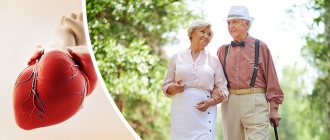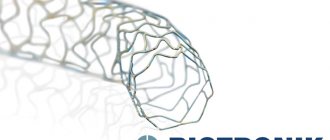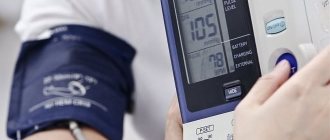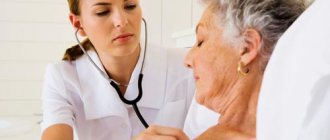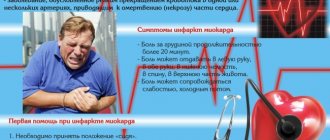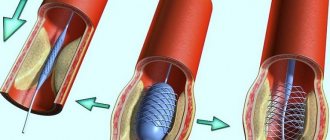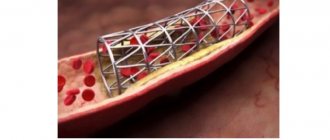Irina Baranova
Cardiologist
Higher education:
Cardiologist
Kuban State Medical University (KubSMU, KubSMA, KubSMI) Level of education - Specialist 1993-1999
Additional education:
“Cardiology”, “Course on magnetic resonance imaging of the cardiovascular system”,
Research Institute of Cardiology named after. A.L. Myasnikova
"Course on functional diagnostics"
NTsSSKh them. A. N. Bakuleva
"Course in Clinical Pharmacology"
Russian Medical Academy of Postgraduate Education
"Emergency Cardiology"
Cantonal Hospital of Geneva, Geneva (Switzerland)
"Therapy course"
Russian State Medical Institute of Roszdrav
Contacts
Patients suffering from cardiovascular diseases often wonder whether it is possible to drink coffee if they have heart arrhythmia or whether it is better to refrain from drinking this drink. Paradoxically, scientists have not yet come to a consensus on this issue. Some experts argue that caffeine should absolutely not be consumed, while others believe that in small doses it will not harm. We will try to understand this issue.
How does coffee affect the cardiovascular system?
Almost any cardiologist will begin to dissuade a patient suffering from abnormalities in the functioning of the cardiovascular system from drinking coffee. It is believed that all strong drinks containing caffeine provoke the development of tachycardia. Many doctors in domestic clinics think so. But modern studies of coffee and the cardiovascular system conducted in Europe show that if you drink several cups of this drink a day, then nothing bad will happen to you.
The most interesting experiment was carried out by scientists from the USA and Denmark. They divided people suffering from arrhythmias into 2 groups. The first one did not take coffee at all, including in instant form. The second was allowed to drink this drink in unlimited quantities. During the test, approximately 2% of all patients were hospitalized. And all of them belonged to those people who drank coffee 1-2 times a week or did not drink it at all. So taking this drink is not only not dangerous, but also useful.
Three cups of coffee a day improves heart rate after a heart attack
A healthy heart beats in a certain rhythm, but with some diseases this rhythm is disrupted - arrhythmias
, which are divided into
atrial
and
ventricular
depending on the part of the heart where the failure occurred.
The cause of most arrhythmias lies in a change in the state of the autonomic nervous system
, which regulates the activity of all internal organs.
One of the common and dangerous heart rhythm disorders is atrial fibrillation
, or
atrial fibrillation
, when the atria begin to contract quickly and chaotically, the efficiency of the heart decreases, which can result in heart failure or stroke.
Many doctors advise patients suffering from cardiovascular diseases, including arrhythmias, to avoid caffeinated drinks, as it is believed that it can provoke abnormal heart rhythms. But how justified is this recommendation? Australian scientists analyzed the results of a survey of about 230 thousand people to identify the connection between the consumption of drinks containing caffeine and the incidence of arrhythmias. It turned out that among “caffeine addicts” the frequency of episodes of atrial fibrillation was not only not higher, but even several percent lower than among the rest.
Another study, conducted on 103 patients who had suffered a myocardial infarction, showed that the average daily dose of caffeine, equivalent to three cups of coffee, only improved their heart rate. As for ventricular arrhythmias specifically, the safe dose was 6 cups of coffee per day - the risk of developing such a disorder increased only in coffee addicts who drank 9-10 cups daily.
What is the reason for such beneficial effects of caffeine? adenosine, among others, takes part in the regulation of heart rate.
.
On the one hand, it is a structural element of nucleic acids - DNA and RNA, on the other hand, it plays the role of a neurotransmitter
in the synapses of neurons in the brain, having an inhibitory effect on the nervous system and mediating the feeling of fatigue.
It is commonly used as a medicine to stop some tachycardias
, conditions in which the heart rate increases sharply, but it does not treat atrial fibrillation.
Chemically, adenosine is classified as a purine
, as well as caffeine, which, by the way, is found not only in coffee seeds, but also in tea and mate leaves, cocoa fruits, and also in some other plants. Caffeine is able to bind to specific adenosine receptors and, in a sense, is its “antidote”: by occupying adenosine receptors, it blocks its action, and the person feels alert.
Scientists conclude that moderate consumption of coffee and tea may have a preventive antiarrhythmic effect due to the antagonism of caffeine and adenosine, as well as the antioxidant properties of these drinks associated with their other components. But with energy drinks, which contain from 160 to 500 mg of caffeine per can, you should be careful. Three quarters of patients suffering from heart disease complained of increased heart rate when consuming two or more of these doses per day.
And the last thing: statistics are statistics, but no one has canceled the individual reaction of the body to the same caffeine. Therefore, if you have heart rhythm disturbances, then it is at least unreasonable to abuse such drinks.
Photo: https://www.flickr.com
Prepared by Maria Perepechaeva
Is there a relationship between coffee and arrhythmia?
Research shows that there may be a slight increase in blood pressure if you drink a lot of coffee every day. But this is only true for those people who drink more than 2 liters of this drink. In reality, such patients practically do not exist. In addition, coffee itself will not cause ventricular arrhythmia. It will not be able to provoke myocardial infarction and other cardiovascular diseases, because is not their main cause. Therefore, a ban on coffee and other products containing a certain dose of caffeine is somewhat useless. When deciding to drink this drink, remember the following rules:
- coffee should be drunk in small quantities;
- nerve cells begin to suffer from large amounts of caffeine;
- To reduce the negative effects of caffeine, it is allowed to add a little cream or milk to coffee.
Caffeine does not contribute to the development of arrhythmia
2K 1 min.
Scientists from the University of California San Francisco conducted a four-year study of how caffeine affects the human body. It turned out that moderate coffee consumption does not contribute to the occurrence of cardiovascular diseases (CVD), but, on the contrary, reduces the likelihood of their occurrence and has an anti-inflammatory effect.
Photo: Gennady Gulyaev, Kommersant
Photo: Gennady Gulyaev, Kommersant
Medical professionals suggest avoiding caffeine-containing products to reduce the risk of developing this disease. Experts believe that the drink is one of the factors in the formation of the disease, despite the lack of clinical trials confirming this fact.
“Coffee is the main source of caffeine for many people and has a reputation for causing or exacerbating arrhythmias. At the same time, we found no evidence to suggest that caffeine consumption leads to a higher risk of arrhythmia. Our population-based study provides confidence that general caffeine bans are likely unwarranted,” explains senior author and professor of medicine in the UCSF Division of Cardiology Gregory Marcus.
The study included 386,258 coffee drinkers, average age 56 years, and just over half were women.
The authors found that each additional daily cup of coffee per day reduced the risk of any arrhythmia, including atrial fibrillation, premature repolarization, or other common CVDs, by 3%. The drink may also have an anti-inflammatory effect, as well as reduce the risk of certain diseases, including cancer, diabetes and Parkinson's disease.
The UCSF team looked at the possibility of coffee-related arrhythmias in people with genetic differences in metabolism. They found no evidence of an increased likelihood of developing the disease among those who metabolize caffeine differently. Moreover, increasing its dose by 3% reduces the chance of pathology.
“Only a randomized clinical trial can demonstrate the true effect of drinking coffee or caffeine. Our study found no evidence that caffeinated drinks increase the risk of arrhythmia. The antioxidant and anti-inflammatory properties of coffee may play a role, and some of the properties of caffeine may be protective against some arrhythmias, says Gregory Marcus.
Used materials from the article Eun-jeong Kim, Thomas J. Hoffmann, Gregory Nah, Eric Vittinghoff, Francesca Delling, Gregory M. Marcus; Coffee Consumption and Incident Tachyarrhythmias; JAMA Internal Medicine, July 2021
Anastasia Sinyukova
How many cups of coffee can you drink in a day if you have arrhythmia?
The main thing in everything is moderation. A whole liter of this drink can disrupt the heart rhythm even in a healthy person. If you drink 2-3 cups of coffee a day, then nothing bad will happen to you. But this measure is an average. Each person has an individual reaction to this drink. Some people tolerate the effects of caffeine and other components of natural coffee very well, while others feel ill after a couple of sips. The standards for coffee and other drinks are as follows:
- healthy person – up to 400 mg of caffeine;
- pregnant woman - 300 mg of caffeine.
This norm is daily, i.e. You can drink no more than 4-5 glasses of this drink in 24 hours. Do not forget that caffeine is included in various teas, so they also need to be added.
Arrhythmia: types, diagnosis and treatment
What is a heart rhythm disorder called arrhythmia and why does its type, tachycardia, occur? - says Ekaterina Radikovna Perminova, a cardiologist at the CORDIS Medical Center. ⠀ Heart rate (HR) at rest is affected by age, physical fitness and other factors. A normal rhythm should be in the range of 60 to 100 beats per minute. The sinus node, which is located in the anterior upper part of the right atrium, is responsible for its regulation. Arrhythmia is a disturbance in heart rate, firing sequence, and conduction. It may feel like a sinking heart or appear as extraordinary contractions.
Arrhythmia has several types that differ from each other. The three main types include sinus, ventricular and atrial arrhythmia. They are further distinguished by heart rate:
- atrial fibrillation is considered the most common type. Cardiac muscle fibers work asynchronously due to twitching or “flickering” of the atria. Their reduction simply disappears. At the same time, the ventricles also stop working normally.
- tachycardia - in this condition, a person’s pulse exceeds 100 beats per minute. Tachycardia that occurs during heavy physical exertion is considered normal. But if you are completely calm and your pulse is high, we can talk about pathology.
- bradycardia - with this type of arrhythmia, the heart rate is less than 60 beats per minute. It often appears when you feel normal. But if you constantly feel unwell, the pathological process has already started.
- extrasystole usually appears for no apparent reason. A premature contraction seems to be woven into the normal heart rhythm. The cause of the attack can be severe stress.
- paroxysmal disorders are expressed in a sharp increase in pulse rate, strong heartbeat with the inability to count its beats. Sometimes their frequency reaches 200 beats per minute. This is a special type of tachycardia, leading to sudden weakness and even loss of consciousness. The condition is considered extremely dangerous. Immediate medical attention is needed here.
CAUSES OF ARRHYTHMIA Arrhythmia does not always occur due to problems related to the functioning of the heart. It can be a consequence of other cardiac pathologies: - heart attack - coronary heart disease - cardiomyopathy - myocarditis - arterial hypertension - heart failure - heart defects (congenital and acquired) - cardiosclerosis - injuries and wounds of the heart These diseases lead to damage to the heart muscle and complicate normal propagation electrical impulse of the heart to its parts. ⠀ HOW ARRHYTHMIA MANIFESTS
- sudden weakness
- headache
- dizziness to the point of loss of consciousness
- shortness of breath, lack of air
- fast or slow heartbeat
- chest compression, pain
BRADYCARDIA
indicates various cardiac pathologies. Most often it appears due to blockage of the sinus node and is characterized by a slowing of the heartbeat to 30-50 beats/min. Other causes of bradycardia include: - heart attack, coronary heart disease, arterial hypertension, heart disease - age-related changes in the heart muscle - reflex effects (cold water, blow to the chest or neck) - increased intracranial pressure, pressure on the carotid artery or eyeballs - stomach and duodenal ulcers - use of drugs that replace heart rate - consequences of poisoning with chemical or organophosphorus substances - disturbances in potassium balance and calcium levels
SYMPTOMS OF BRADYCARDIA If you have a heart rate less than 40 beats per minute, this may lead to the development of heart failure. Common symptoms of bradycardia include:
- general weakness, cold sweat
- pale skin and mucous membranes
- dizziness
- swelling
- convulsions
- dyspnea
- low blood pressure
- fainting or momentary loss of consciousness
- absent-mindedness
WHAT TO DO Unfortunately, arrhythmia can be either an independent pathology or a manifestation of another disease. Therefore, if you begin to sleep poorly, wake up with shortness of breath in the middle of the night, if you have tremors in your hands and you panic more and more often, you have heart problems. With sinus bradycardia, a rare pulse and respiratory arrhythmia are observed. To diagnose it, daily ECG monitoring, cardiac ultrasound, and exercise bicycle ergometry are prescribed. The sooner you see a doctor, the lower your risk of developing cardiovascular problems. Sinus bradycardia requires constant prevention. Quit smoking and alcohol, normalize blood pressure and weight, eat right. Worry less and exercise.
TACHYCARDIA
is not considered a severe pathology. Rather, it is a symptom when the heart rate exceeds 100 beats per minute. It is usually caused by increased physical activity in those who do not regularly engage in heavy physical labor or sports. But sometimes the CAUSES of tachycardia can be: - dehydration - increased sensitivity to coffee, strong tea, nicotine, alcohol - high temperature - sleep problems - anemia - obesity - strong emotions, stress, fear - old age - hypertension or hypotension - taking certain medications (from a runny nose or cough) - intoxication - in some cases - heart disease
In a completely healthy person, the heart rate can reach 150-200 beats/min. and higher. It happens that an attack lasts from several minutes to several hours. Your norm for tachycardia and arrhythmia is quickly passing symptoms without weakness, sweating and decreased blood pressure.
SYMPTOMS OF TACHYCARDIA You should consult a doctor when:
- heart rhythm disturbances occur frequently and for a long time
- you begin to experience shortness of breath, lack of air
- if you feel dizzy and sweat
- you urinate often
- you feel scared for no reason
- you stop sleeping normally, you lose your appetite
- there is pain in the heart area
- general health and mood are at zero
WHAT WE DO If you suddenly feel ill, apply a cold compress to your forehead, wash with cool water, and then take one of the sedatives: Corvalol, Valocordin, valerian, motherwort or peony infusion. Of course, if you discover symptoms of arrhythmia, you need to undergo an ECG examination. It shows the consequences of rhythm disturbances, even if you are already fine and the attack has passed. But it may happen that tachycardia is accompanied by loss of consciousness, severe chest pain or shortness of breath. Then call an ambulance immediately. Tachycardia should be treated only after its cause has been determined. To reduce the likelihood of unexplained tachycardia, avoid caffeine, spicy foods, chocolate, alcohol and cigarettes. Also, avoid serious physical activity and be less nervous.
AFIBLIRATORY ARRHYTHMIA
As you know, the heart must contract in a strictly ordered rhythm. And one of the deviations from it is atrial fibrillation (atrial fibrillation). ⠀ The prevalence of this rhythm disorder increases with age: approximately 6% of men and women over 60 years old suffer from atrial fibrillation. ⠀ What happens to our heart during an attack of atrial fibrillation? The atria begin to contract rapidly and erratically, and the sinus node does not coordinate the heart rhythm. These fibrillations can reach 300-600 per minute when the norm is from 60 to 90. Scary, right? ⠀ If atrial fibrillation lasts for a long time, blood clots may occur, and hence ischemic strokes and acute arterial insufficiency of the arteries of the upper or lower extremities. ⠀ REASONS This disease is caused by a number of reasons related to both cardiac pathologies and diseases of other organs or external factors affecting the body: - heart attack - arterial hypertension - tachycardia - myocarditis - severe heart failure - intoxication - cardiosclerosis - rheumatic heart defects - cardiomyopathy - thyrotoxicosis - diabetes - psycho-emotional overload - previous surgical interventions - hypokalemia ⠀ Atrial fibrillation in itself does not threaten your life. But atrial fibrillation interferes with the synchronous functioning of the heart and increases the risk of developing chronic cardiovascular failure and thromboembolic complications. ⠀ SYMPTOMS So, we can talk about atrial fibrillation if you find the following symptoms: erratic heartbeat
- feeling of heart fluttering
- chest pain
- weakness and sweating
- labored breathing
- dizziness and fainting
- shiver
- frequent urination
- feeling of fear
⠀ But as soon as you restore your heart rate, these symptoms disappear. Atrial fibrillation is of three types: - paroxysmal from 30 seconds to 7 days - persistent - longer than 7 days - constant
HOW TO DETECT The following are considered the most accurate diagnostic methods for identifying atrial fibrillation and the causes leading to it: ECG Ultrasound of the heart MRI of the heart Bicycle ergometry and treadmill test 24-hour Holter monitoring Blood test, which can be used to confirm or rule out other diseases You can measure your pulse yourself and assess the regularity and frequency of heart contractions. A fast, slow, or arrhythmic pulse indicates that your heart rhythm is abnormal.
WHAT TO DO First of all, make an appointment with a cardiologist. The doctor will prescribe you treatment to prevent “rhythm disruptions” and their complications, and correct diseases that lead to paroxysmal atrial fibrillation. In some cases, paroxysmal atrial fibrillation may require hospital treatment and electrical pulse restoration of rhythm. We will have to reconsider our lifestyle. If you abuse smoking, alcohol and fatty foods, give up everything that can have a bad effect on your health. Strong tea and coffee can also cause heart rhythm disturbances, so reduce their consumption.
*Prices are presented for informational purposes only. The current price list can be found here
Is it possible to drink sweet coffee if you have arrhythmia?
Above we looked at cases where patients took lightly sweetened or regular coffee. It’s another matter if a person drinks very sweet coffee every day and believes that there is no relationship between it and arrhythmia. Sugar negatively affects the functioning of the cardiovascular system and metabolism. It disrupts the normal production of enzymes. When it enters the bloodstream in combination with caffeine, sugar causes the heart to pump faster. As a result, the pressure rises.
If you like coffee that is too sweet and your doctor has diagnosed you with arrhythmia, you will either have to change your taste preferences or give up the drink altogether. But there are exceptions here too. In some people, arrhythmia is accompanied by a sharp drop in blood pressure. Sweet, strong coffee will help normalize blood flow, which will lead to the elimination of symptoms of arrhythmia. In other cases, a sweet drink is allowed to be drunk only 1-2 times a day.
What does this mean?
Although the main finding is that moderate daily coffee consumption does not contribute to AR, based on a small but statistically significant reduction in the number of new cases, Dr. Kim added. “Numerous studies have shown that caffeine and other constituents of coffee have antioxidant and anti-inflammatory properties. Numerous studies report the potential benefits of coffee for multiple chronic diseases, such as cardiovascular disease, diabetes and some types of cancer, and coffee reduces overall mortality."
"It is likely that moderate amounts of coffee consumed per day will not lead to large physiological changes, but may be associated with other characteristics" that lead to average or better results, Dr. Krahn commented. "These results add to existing evidence" that confirms that moderate coffee consumption is not harmful, he said. https://www.medscape.com/viewarticle/930195#vp_1
How are coffee, the central nervous system and arrhythmia related?
It is believed that coffee is extremely beneficial for the nervous system, but there are people who disagree with this statement. Upon careful examination of brain scans, one can notice that the structure of neural networks begins to change when this drink is abused. Most often, the area responsible for short-term memory is affected, i.e. able to remember events and phenomena that happened yesterday or today. Nerve impulses from the brain stop reaching the cardiovascular system normally, which can provoke arrhythmia.
On the other hand, 2-3 cups of coffee a day enhances a person’s cognitive functions. They increase vigor and improve the general condition of a person. Scientists from the Netherlands have diagnosed that drinking coffee among older people helps them improve their memory. They observed the experimental groups for 10 years. As a result, the group where people did not drink coffee at all demonstrated a decrease in mental activity by 7.5%. It's funny that in the same group the number of cardiovascular diseases, including various types of arrhythmias, increased.
Some studies suggest that people who enjoy drinking coffee are less likely to suffer from Parkinson's and Alzheimer's disease, i.e. The effects of this drink can be compared to the benefits of a good workout.
Scientists have refuted the idea that coffee is harmful for arrhythmia
Doctors often advise drinking less coffee for those who have an increased risk of arrhythmia - it is believed that caffeine can have a bad effect on heart rhythm. But this recommendation is based on a small study from the 1980s, the results of which were not subsequently confirmed sufficiently.
Experts from the University of California at San Francisco decided to test how drinking coffee affects the risk of developing arrhythmia. To do this, they used data from the UK Biobank repository of medical and genetic information.
Researchers collected data on the health status, genetics and frequency of coffee consumption of more than 386 thousand people. On average, they drank 1-4 cups of coffee per day. Over five years, almost 17 thousand participants developed arrhythmia.
After adjusting for demographic characteristics, habits, comorbidities and other factors, the scientists found that drinking coffee did not contribute to arrhythmia.
Moreover, each additional cup of coffee per day reduced the risk of developing arrhythmia by 3%.
Scientists talked about this in more detail in an article in the journal JAMA Internal Medicine.
The analysis showed that coffee contributed to a lower incidence of atrial fibrillation and supraventricular tachycardia, common heart rhythm disorders.
The researchers also looked at genetic variants that affect caffeine metabolism. However, they also did not affect the risk of developing ari.
The specific mechanisms by which coffee may reduce the likelihood of developing arrhythmia are not yet clear, but the authors of the study offer several possible explanations. Firstly, atrial fibrillation more often occurs when the refractory period - the period of time when the heart muscle does not respond to stimuli - shortens. Caffeine lengthens the refractory period, which leads to normalization of heart rate.
In addition, caffeine blocks receptors for adenosine, a substance that plays a role in energy transfer. Excess adenosine can lead to atrial fibrillation, and this restriction appears to avoid this.
Coffee's antioxidant and anti-inflammatory properties may also play a role.
The researchers emphasize that the coffee consumption data was based on self-reporting, which could have biased the data. They also did not have detailed information about what kind of coffee the participants drank or what other caffeinated drinks they consumed. Overall, however, the results are consistent with research from recent decades and appear to be accurate enough to be significant, the scientists said.
“Common restrictions on caffeine use to reduce arrhythmia risk are likely unwarranted,” they conclude.
They remind us that drinking coffee is associated with a reduced risk of cancer, diabetes, Parkinson's disease and other diseases, as well as a longer life expectancy. Of course, coffee is not a panacea, but it is a healthy and safe drink that you should not refuse unless there are significant contraindications such as exacerbation of gastritis.
Previously, a team from the University of Colorado also found out
that coffee can protect against heart failure. Using neural networks, scientists analyzed data from participants in several large studies of heart disease that lasted at least 10 years.
Drinking one or more cups of coffee per day was found to reduce the risk of heart failure in the long term.
On average, a cup of coffee a day reduced risks by 5-12%.
Those who drank at least two cups of coffee a day had a 30% lower risk of heart failure. Further examination of the data showed that any source of caffeine appears to improve the outlook. div data-widget=”Player” data-player-template-id=”11408″ data-ad-template-id=”10037″ data-ssp-jparams=’{“puid6″:”GAZETA_SCIENCE”,”puid10″: "NO","puid15":"article","puid18":"GAZETA_SCIENCE_MEDICINE","puid59":"bc"}' data-id="1772550">

